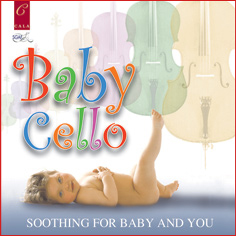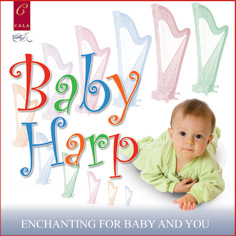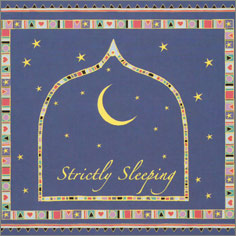
 |
A Sound Start in Life
"We have professionally selected a range of the best music now available for children, while developing our own award-winning
Unique Baby Music Formula for soothing and enchanting mother and baby."
Artistic Director
 |  |
 |  |
"The music is beautiful! The richness of it is wonderfully soothing for my baby."
iParenting Media Awards
"One of the most relaxing CDs we have ever had the pleasure of experiencing."
Practical Pre-School Gold
 We work withArts Global"Helping Young Musicians"artsglobal.org Shop Here!
We work withArts Global"Helping Young Musicians"artsglobal.org Shop Here!PayPal plus all major
Credit and Debit cards
—Secured by SECPay— Postage of £3.50 added
at checkout to an
order of any size
Information about the benefits of good music heard throughout pregnancy, early life and into adulthood. Pointers to fine participatory music programmes for young people. | |
MUSIC AT BEDTIME
How music enhances and assists with the bedtime experience
 | Click here to download a PDF version of this article Choosing music and how to use it For generation upon generation, parents have used music at bedtime to help their children to relax and feel secure as they drift off to sleep. Here we examine why music is so effective in helping both children and adults get a good night’s rest, and discuss how different kinds of music can be used at different points in your bedtime routine. |
Many parents choose to use music as part of their child’s bedtime routine. It is well known that listening to music helps us to relax and ‘switch off’, allowing a gentle transition into sleep. Bedtime activities should be calming and relaxing, so that the child doesn’t become over-stimulated or excited before being expected to go to sleep. If your child has difficulty in falling asleep it can be a good idea to introduce a wind-down time of an hour or so before beginning the bedtime routine, so that the whole household is quiet and becomes an atmosphere conducive to sleep. Listening to appropriate music is an excellent choice of activity for this time. While in the womb, babies are surrounded by constant noise. From the mother’s heartbeat to external sounds, there will have been a continuous envelopment of comforting sounds. It makes sense, therefore, that once they are born, certain sounds will soothe and help babies to sleep. Some mothers may play music to their unborn child specifically for this purpose (see our article, Music in the Womb), while others may introduce it later on. Either way, playing music for babies and young children to help them to sleep is known to be a very effective technique, and it’s one that has been carried out by parents all over the world for many generations. “When you consider that your baby was enveloped in an environment before birth that provided an endless supply of comforting noise, it is easy to see why a bit of noise may help her fall asleep. Even when your baby awakens during the night, music can be helpful in helping her settle back to sleep.” (How to use music to help a baby sleep) It’s not just babies who can benefit from music at bedtime. The relaxing effects can help people of any age to fall asleep more easily, and to sleep more deeply, having a more restful experience overall: “Studies have shown that listening to relaxing music will lower stress levels and allow the easing of tense muscles and stress felt from a busy day or week. Relaxation bedtime music helps those individuals who have trouble falling asleep or turning off the chatter of the day. Calming music also boosts the immune system and has a positive effect on the listener’s mood, making them feel more positive and optimistic.” (Stress Free Kids) By associating particular music with bedtime and falling asleep, you can train your child to fall asleep without resistance, help them to feel relaxed and secure at bedtime even in an unfamiliar place, and also improve the quality of the sleep they get. Choosing music and how to use it The music you select to use at bedtime will depend very much on what point in the bedtime routine you plan to use it: as a ‘wind-down’ activity, instead of, or as well as, a bedtime story, or to fall asleep to. Not all music created or recorded specifically for children will be suitable, and some thought needs to be given to your selection. “The criteria for the most effective bedtime music are as follows. One: the music should have a steady beat. Two: the music should have a steady harmonic rhythm (meaning that the chords—the harmonies—change with a high degree of regularity). Three: the music should not include voices. Voices (and the words being sung by voices) grab and hold our attention in a manner not conducive to snoozing. Four: Generally speaking, it is best to steer clear of works for orchestra because of their greater dynamic range (meaning extremes of loud and soft) and conversely, better to stick to works for solo keyboard or chamber music.” (Bedtime Music: 10 Soothing Classical Pieces for Kids of Any Age) The above criteria are defined by author and composer Robert Greenberg in an article for the US news website and blog, “The Huffington Post”. His third point, that the music should not include voices, is an interesting opinion, as it conflicts directly with the idea of singing lullabies to help an infant to sleep. It’s possible, though, that as Mr Greenberg was writing specifically about using recorded music, he may have formed his opinion because recorded songs and lullabies cannot convey one of their most unique and important characteristics: that of physical and emotional closeness to the singer. Mr Greenberg’s criteria may not be right for everyone, but they provide a starting point for discussion on what is important about bedtime in your household, and how the music you choose can reflect this. You might find it helpful to use recorded music to play in the background while you wind down your baby at the end of the day, tidy away toys, get pyjamas on and clean teeth. It might also suit you to put on a CD and leave it playing while your child falls asleep, so that you are free to get on with other things. If, however, you want to really engage your child with the music, encourage them to participate and form a close bond with you, there really is no substitute for listening together, or singing with them, either as well as, or instead of, playing a CD. Children will love reciting nursery rhymes with you in place of a bedtime story, or listening to you singing songs that are familiar to them. You don’t have to be an accomplished musician to learn a few lullabies, and if you’d prefer to listen with your child instead, babymusic.com has a number of high-quality recordings of lullabies tried and tested by countless parents. If you would like to leave a CD of music playing in your baby’s bedroom while they fall asleep, we have found that our in-house recordings have been particularly popular with parents, and support Mr Greenberg’s critera for good bedtime music. Counter to his concerns about the size and sounds of orchestras, we have our “Unique Baby Music Formula” to thank: we discovered that large groups of harps, or cellos, make the loveliest sounds when the musicians play in an almost totally relaxed fashion, much more so than when performing solo or in a conventional orchestra. This, when combined with the extraordinary aura of richness and depth which emerges when so many of the same instrument play together, imparts a unique and irresistible sense of tranquillity and repose to the listener. Lullabies exist in every culture and throughout human history. A lullaby is a soothing song usually sung to a child before they go to bed, or as they fall asleep. As a result, lullabies are often simple and repetitive, easy to sing from memory and easily recognisable for the child. “Although no one is certain, it is believed that the name “lullaby” comes from the “lull”-ing and “by”-ing sounds one makes to help a baby fall asleep. Others believe the term comes from a Hebrew phrase, “Lilith-Abi” meaning “Lilith begone.” Lilith is a folkloric character who was believed to steal children in the night and these incantations were sounded to keep her away.” (SitnSleep.com) The most obvious emotional benefit of a lullaby is bonding. The child and the singer are able to focus purely on each other at a very intimate level. A baby has no idea what makes a good singer or a beautiful voice—all they care about is listening to the person they depend on most in the world communicating their love through soothing, peaceful and reassuring sounds—giving them the sense of security needed to fall asleep. Anyone can learn and sing a lullaby or two, and they really are one of the most universally useful tools of parenting. There is no musical experience required and your audience is the most accepting and appreciative you’ll ever find. Whether you want to listen to a recording with your child at bedtime, or leave some music playing in their room while they fall asleep, there is a vast number of recordings on the market to choose from. So how do you decide? At babymusic.com, we’ve done the hard work for you by selecting only the best in music for children and adults alike. Our “Unique Baby Music Formula” imparts a sense of calm and relaxation to the listener. We also carry an excellent selection of vocal music and lullabies, so you’re sure to find something to fit into your bedtime routine, however you choose to use it. Websites: A website offering music and information to help children, teens and adults deal with stress, anxiety and anger. Some useful bedtime and stress-relieving tips. This excellent blog site gives information and ideas for using music with pre-school age children. Parents and teachers will find this extremely helpful. A resource for anyone interested in lullabies and children’s songs from Scottish tradition. Online Articles: Bedtime Music: 10 Soothing Classical Pieces for Kids of Any Age Author, composer and music historian Robert Greenberg writes about he uses music at bedtime, and suggests some appropriate pieces to try with your children. Facts on How Music Affects Babies & Toddlers While They Are Sleeping Short and to-the-point, this article reinforces the facts and views already expressed, with links to more detailed information. How does music affect sleeping patterns? An overview of the science behind how music helps us sleep, and how we process the sound subconciously while asleep. How to use music to help a baby sleep This e-How article gives step-by-step instructions. Links to lots of other relevant and interesting pieces. The Effect of Music on Sleeping Children A short article which offers a basic overview of the science behind how music can help us sleep better. Provides links to more comprehensive information online. What type of music helps kids sleep the best? Some useful suggestions to help you choose music to get your children to have a good night’s sleep. Why use nursery rhymes at bedtime? A short, but thought-provoking article with examples. Periodicals: These are highly technical academic articles, but may be of interest to those wanting very in-depth information. Harmat L, Takács J, Bódizs R., “Music Improves Sleep Quality in Students” Journal of Advanced Nursing, 2008 May;62(3):327-35. |









